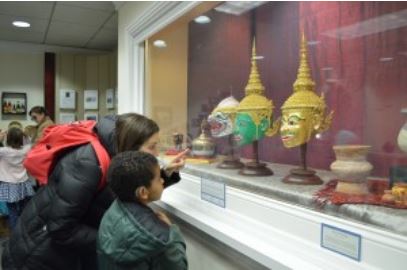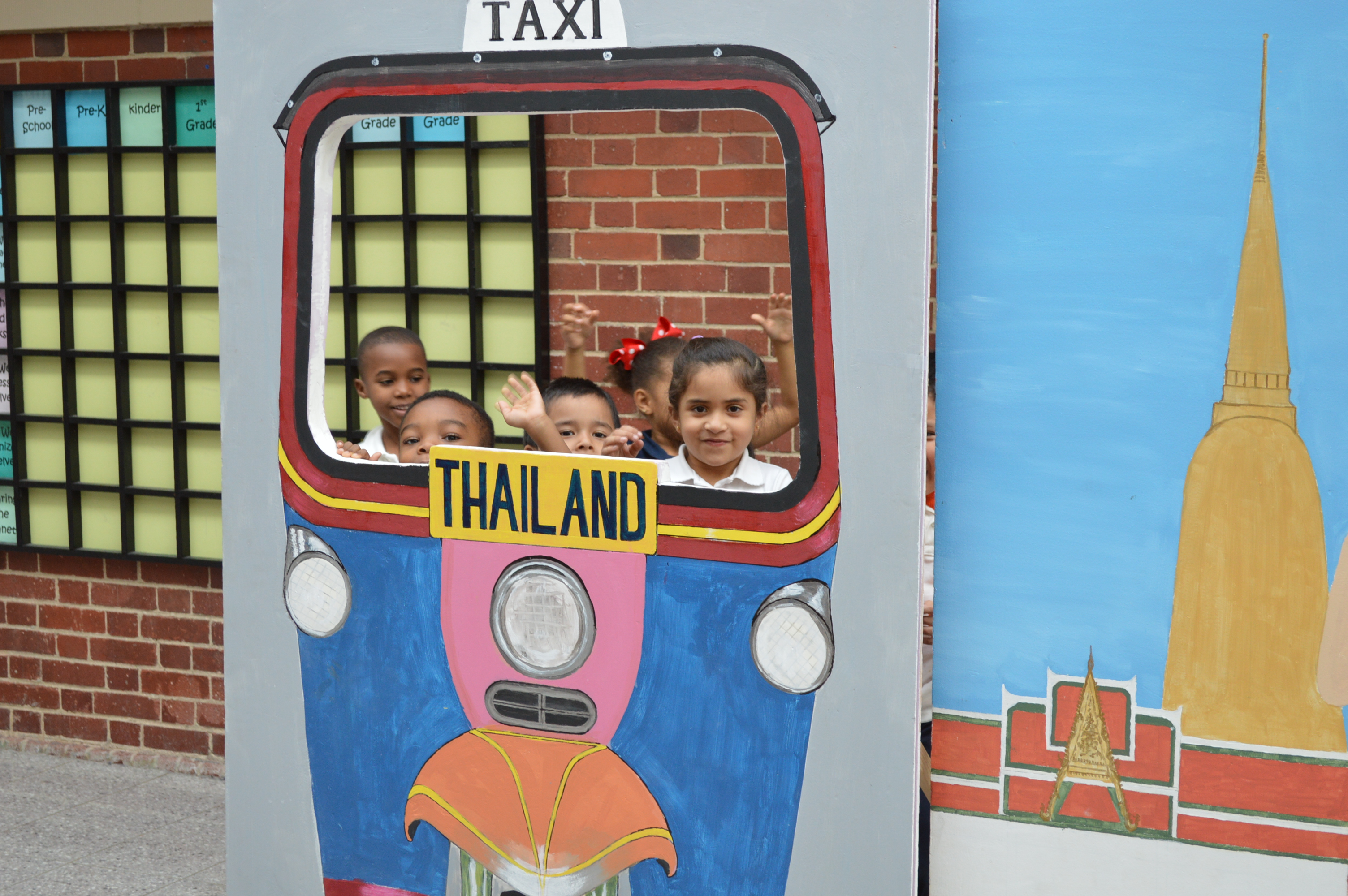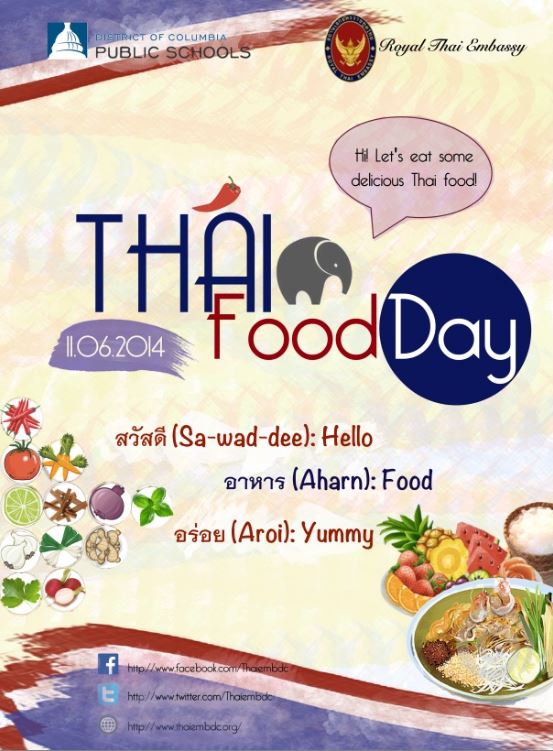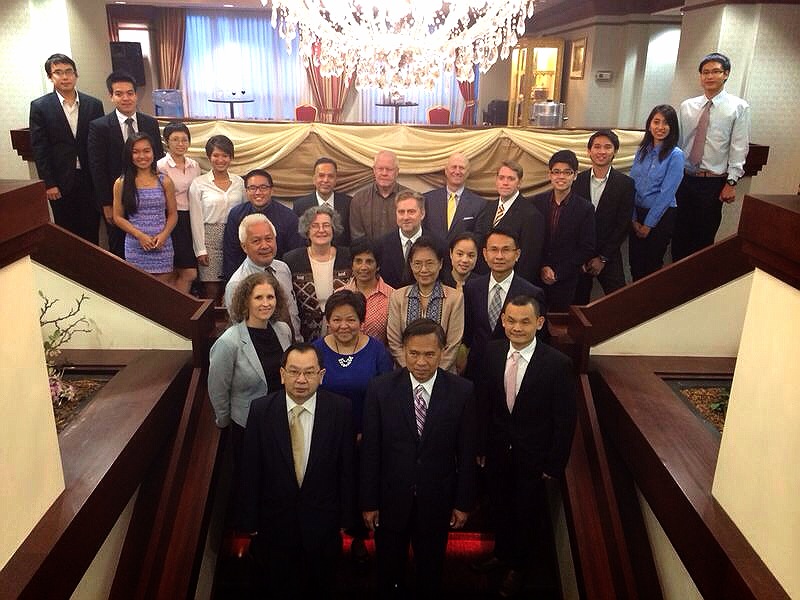วันที่นำเข้าข้อมูล 24 Mar 2023
วันที่ปรับปรุงข้อมูล 4 Aug 2023
Youth and Education


People-to-people relations, especially among children and youth, have long been a cornerstone of the Thai-U.S. relations. The Embassy has cooperated with various agencies in the United States to promote ties between American and Thai youths and to promote knowledge about Thailand and its rich culture among American students. Our counterparts include, for example, the U.S. Department of State, through a program such as Fulbright, District of Columbia Public Schools (DCPS), Washington Performing Arts and many educational institutions.
Examples of these activities are;
Embassy Adoption Program (EAP) : The Embassy closely cooperates with DCPS and Washington Performing Arts to expose American students to global education and knowledge about Thailand. While the EAP celebrates in 2017 its 42nd anniversary, we are proud to have been an EAP partner since 1983. During the current academic year, the Embassy adopted a fifth grade class of Truesdell Education Campus in Washington, D.C. and has organized a series of activities with the students to let them to get a glimpse of Thailand and its rich culture.


EAP 2021 : Capstone Presentation, the fourth (and last) time during the academic year 2020-2021
EAP 2022 : Capstone Presentation, the fourth and final activity of the 2021 – 2022 academic year
On 6 November 2014, the Embassy and DCPS jointly organized the Thai Food Day, on which around 45,000 students in over 100 public schools in the D.C. area had Thai food for breakfast and lunch. During the event launching ceremony at H.D. Cooke Elementary School, the students enjoyed performances of traditional Thai dances and Muay Thai, and participated in the “How well do you know Thailand?” quiz. In addition, the Embassy arranged booths where the students broadened their knowledge about Thailand. These included a Thai language booth with Dr. Prawet Jantharat, Coordinator of the Network of Thai Language Professors in the United States as the instructor and a booth featuring the art of fruit and vegetable carving from a chef at the Ambassador’s Residence.

Truesdell Education Campus 5th Grade Class visited the Embassy on January 12, 2017.
Thai Clubs are associations of Thai students and foreign students who are interested in learning about Thailand and Southeast Asia. Initiated in 2006 by the Ministry of Foreign Affairs of Thailand, there are currently 15 Thai Clubs established in universities across the Untied States that receive funding from the Ministry. Click here for the list of Thai Clubs
Thai Studies Programs started in 2005 by the Embassy, with support from the Ministry of Foreign Affairs of Thailand. It aims to promote the studies of Thai language, history, culture and other areas in American universities.

On 2 – 3 September 2014, the Embassy hosted the Annual Meeting of Thai Studies Programs and Thai Clubs in the United States. The meeting was chaired by Mr. Songsak Saicheua, Director-General, Department of American and South Pacific Affairs, Ministry of Foreign Affairs of Thailand. It was attended by some 40 representatives from Thai Studies Programs and Thai Clubs in various universities across the U.S. and from Chulalongkorn University and Thammasat University in Thailand, as well as representatives from the Embassy and Royal Thai Consulates-General in New York, Chicago and Los Angeles.
The Fulbright Thailand Program operates under the Thailand-U.S. Educational Foundation (TUSEF). It was established in 1950 through a bilateral agreement between the governments of Thailand and the United States. The earliest programs included in-country scholarships for talented rural Thai students to study in American-sponsored secondary and nursing schools in Thailand, scholarships for air transportation for Thai students furthering their studies in the United States and scholarships for travel and maintenance for visiting American professors, teachers, and researchers coming to Thailand. By 1963, the program had expanded to provide a full range of bilateral educational exchanges including programs for students, trainees, teachers, professors, and specialists in various fields.
Initially, the Fulbright Thailand Program’s operating budget was from the U.S. Department of State. Beginning in 1989, the government of Thailand has also provided an annual contribution to the Fulbright Program. For more information, please visit the Fulbright Thailand’s website.
สถานเอกอัครราชทูต ณ กรุงวอชิงตัน
Consular Office (ฝ่ายกงสุล)
2300 Kalorama Road, N.W. Washington, D.C. 20008
Office Hours
Monday - Friday 09.00-17.00 hrs.
Official Holidays
Official Holidays